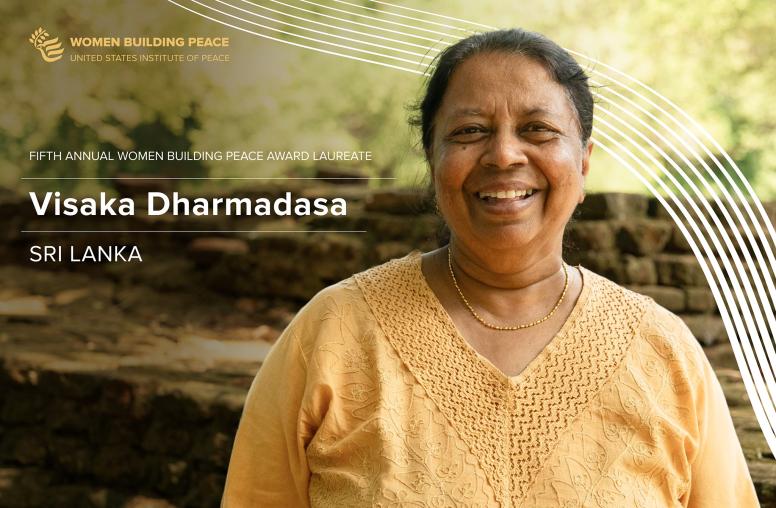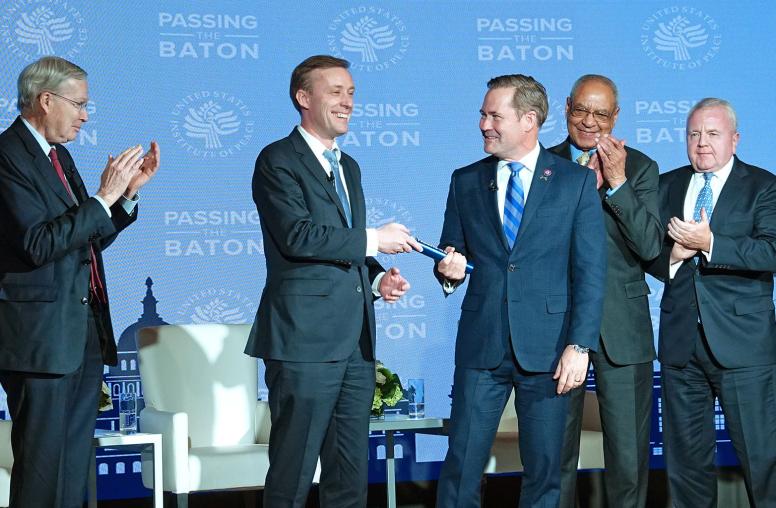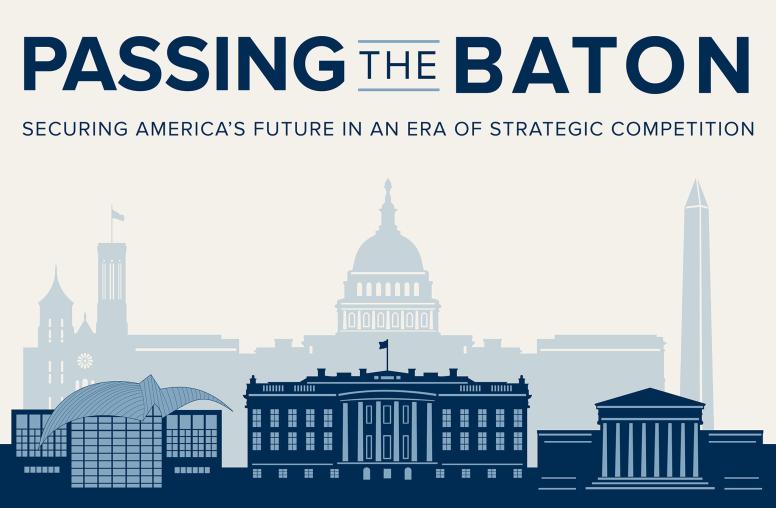Newly-Created PeaceTech Lab Announces Board of Directors
Creating a Future of PeaceTech Entrepreneurs Attracts Industry Leaders
For Immediate Release, June 16, 2015
Contact: Wendy Greenwald
303-482-5335
(Washington) -- Technological innovation is moving at breakneck speed and with it the power to drive positive change. In conflict areas around the globe people are harnessing technology, media and data to prevent or reduce violent conflict in their communities. Supporting this global movement to save lives is PeaceTech Lab, an organization created by the U.S. Institute of Peace (USIP) and spun off as a separate entity.
“Launching PeaceTech Lab realized a strong conviction here at USIP that the future of peacebuilding requires harnessing the power of the private sector, media and technology. USIP was proud to parent PeaceTech Lab, and we are eager to work together into the future,” said Nancy Lindborg, president of USIP and member of the Lab’s board of directors.
The mission and work of the PeaceTech Lab has attracted a high-powered board of directors made up of leaders in business, technology, engineering, diplomacy and peacemaking, all with a shared interested in supporting the Lab to become a leader in this field. This group of prominent individuals has recognized that peacebuilding today is being redefined by global information and capital flows, and that the Lab is well positioned to shape the future of this field.
PeaceTech Lab CEO Sheldon Himelfarb has worked in conflict zones around the world for the better part of two decades. “Each of us has the power to send information and money around the world with the push of a button. Every day we are seeing that power being used to promote or prevent violence,” said Dr. Himelfarb. “PeaceTech Lab brings together engineers and activists, MBAs and conflict experts, social scientists and data scientists, to develop new ways to use media, tech and data to save lives.”
The PeaceTech Lab board includes:
Nicholas M. Donofrio (Chairman) is a 44-year IBM veteran who was IBM's executive vice president of innovation and technology from 1997 until his retirement in October 2008. He also was vice chairman of the IBM International Foundation and chairman of the board of governors for the IBM Academy of Technology. He is the holder of seven technology patents and is a member of numerous technical and science honor societies; and serves on several corporate and education boards of directors.
Dr. Bernard Amadei (Vice Chairman) is a professor of civil engineering at the University of Colorado at Boulder, Dr. Amadei holds the Mortenson Endowed Chair in Global Engineering and served as faculty director of the Mortenson Center in Engineering for Developing Communities from 2009-2012. He is also the founding president of Engineers Without Borders-USA and the co-founder of the Engineers Without Borders-International network.
Nancy Lindborg is president of the U.S. Institute of Peace. Prior to joining USIP, Lindborg served as the assistant administrator for the Bureau for Democracy, Conflict, and Humanitarian Assistance at USAID.
Tom Monahan is currently chairman and CEO of CEB and oversees nearly $1 billion in annual revenue and a staff of 4,000 global employees who deliver insights and actionable solutions to the markets they serve every day.
Colin Rule is co-founder, COO, and chairman of the board for Modria.com, the world's leading online dispute resolution platform. Modria spun out from eBay and PayPal in 2011 and has since received funding from investors like Battery Ventures, Advanced Technology Ventures, and Foundry Group.
Tara D. Sonenshine is a former under secretary for public diplomacy and public affairs for the Department of State and previously served as the executive vice president of the U.S. Institute of Peace.
“With our new board, that we are announcing today, we are enlisting individuals, corporations, foundations and others who have an interest in harnessing this amazing and unprecedented capability to make a truly global impact on war and peace,” added Dr. Himelfarb.
Some of the Lab’s longest running programs have been in media, with radio programs currently in South Sudan and Afghanistan. These programs promote peace and empowerment for their listeners, with long lasting impacts. For example, the youth-focused Salam Shabab TV game show in Iraq brought together students from across sectarian divides. The friendships it created has led to online and offline networks of young leaders across Iraq standing up against ISIS and extremism in their communities.
The Lab also hosts PeaceTech Exchanges (PTXs) in several conflict areas such as Iraq, Pakistan, Myanmar, and India. Working in collaboration with local experts, the Lab empowers local organizations in conflict zones to apply low-cost, easy to use technologies to support their work. Topics during the workshops have included everything from preventing gender violence to increasing government transparency.
Some projects created in PTXs have received startup funding. Examples from Iraq include a crowd-sourced map that records instances of violence or threats of violence against journalists across Iraq, a plan to help communities map problems with infrastructure in order to increase government accountability and an effort to streamline the national ID process. These are problems and solutions identified by people in the conflict zones. PeaceTech Lab helps tie them together in networks, provide the training and funding for them to move their solutions to the next level.
# # #



